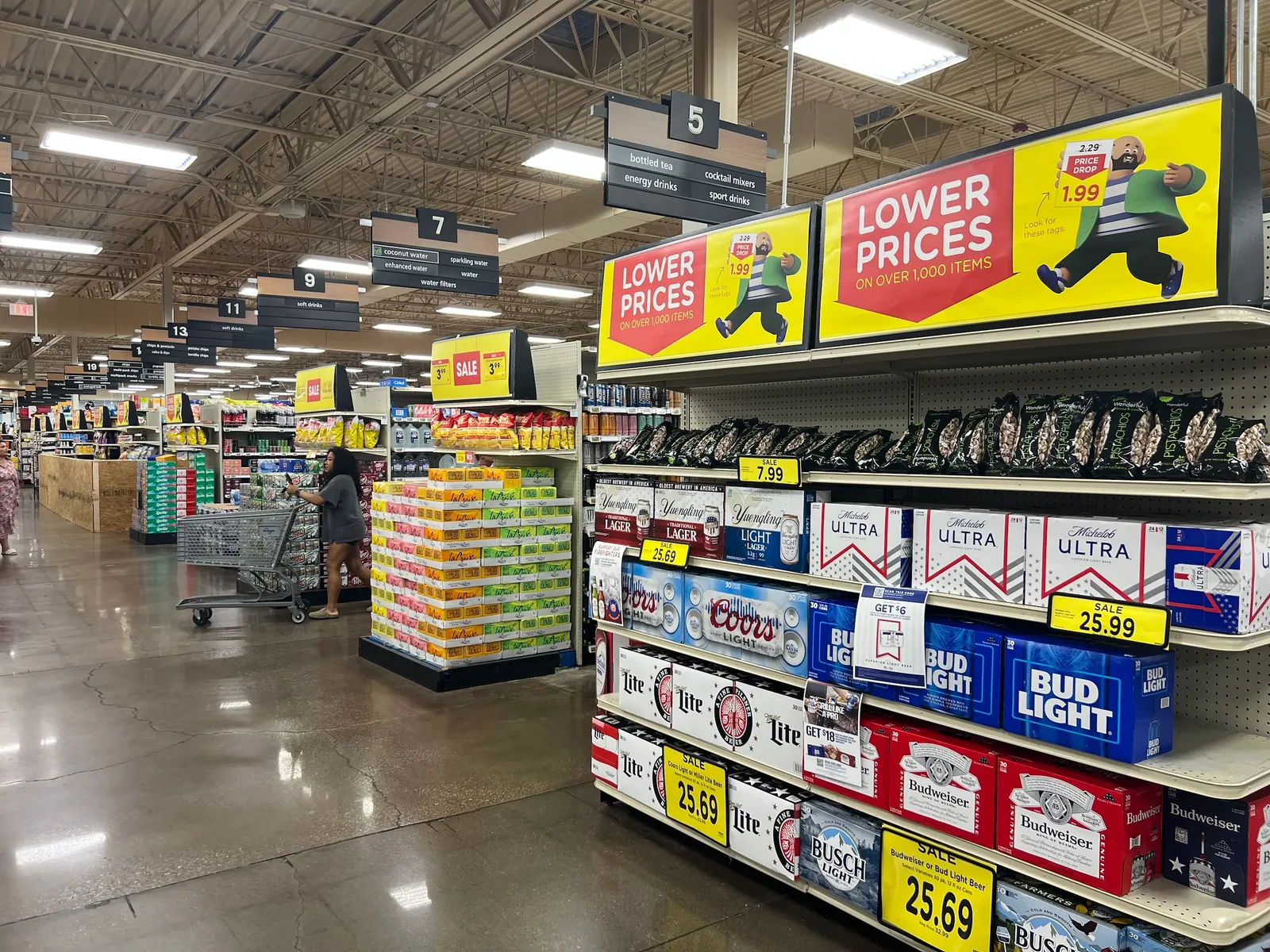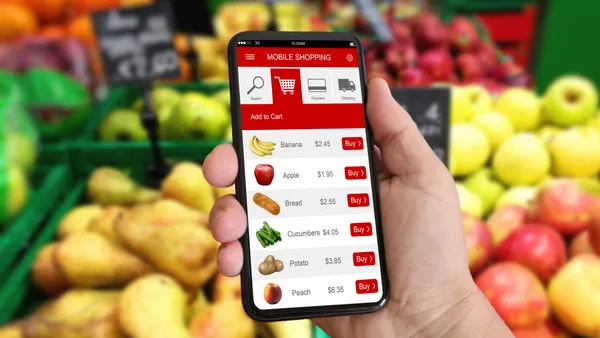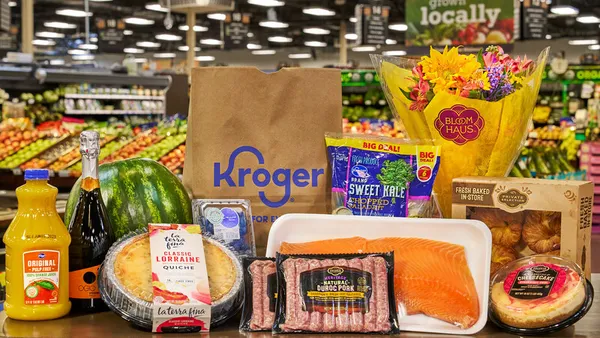As consumers have grown increasingly price sensitive over the past few years, retailers have responded with messaging meant to show they understand their economic anxieties.
Companies like Kroger, Giant Food and Amazon Fresh have covered their stores with signs touting low prices, while others like c-store chain TXB have revamped their loyalty programs to help members earn more points and discounts. Even retailers that aren’t known for being particularly price competitive, like Wegmans, have featured in-store messaging to reassure consumers they are, in fact, a good value.
Retailers say these strategies resonate with customers. But according to recent research from the Kearney Consumer Institute, an internal think tank within the management consulting company that regularly surveys global consumers, shoppers think retailers are laying it on a bit thick.
“I think consumers are savvy enough that brands just simply don’t have to be that on the nose” in aggressively marketing low prices, said Katie Thomas, who leads the institute.
KCI’s latest “stress index” report found that, while shoppers are indeed carefully watching their spending and relying on promotions to save money, they’re also looking to selectively spend on fun new products and experiences. They don’t want retailers to just echo their anxieties — they want help discovering new, exciting food and beverages.
The institute’s latest report, which polled 24,000 consumers across 12 countries, noted that 68% of survey participants say they prioritize taste over price in the products they buy. The perceived quality of products factors into most purchasing decisions, with 19% saying they look for the highest-quality products and 48% saying they look for a balance of low price and quality. One-third of consumers say they look solely for the lowest-priced products when shopping.
The report noted that consumers have grown bored with shopping as retailers have focused more on low-price marketing. They are also skeptical of companies’ value claims as prices have risen in some areas of the store, Thomas noted.
Thomas said she regularly visits grocery stores as part of her research and has found the overall experience to be pretty “blah.”
“It feels like we’re just in this moment where we’ve really started to overlook the consumer,” she said.

Providing ‘small wins’ for shoppers
What should grocers do? Consumers are looking for “affordable luxuries” and “small wins” throughout their days, indicating an opportunity to call out eye-catching snacks, beverages and other treats, Thomas said.
But winning over consumers may require grocers to revamp their processes. While convenience stores do a good job with limited-time offers and driving consumer awareness of new products, Thomas said, grocers tend to lean heavily on weekly circulars and shelf resets that run like clockwork but struggle to generate excitement.
And while many grocers regularly add fun new private label products and trendy brands, they’ve made discovery difficult by stocking so many items in their stores, Thomas said. This leads to “analysis paralysis” that keeps many shoppers buying only the products they’re familiar with, she said.
Promoting discovery, in other words, may require retailers to pare back their selections in addition to promoting innovative products. Discount chains like Aldi and club retailers like Costco, for instance, make product discovery easier for shoppers because they offer a more limited selection that’s easier to peruse, Thomas said.
“It’s an easier shopping experience. [Consumers are] not deciding between 10 different kinds of ranch dressing, they’re deciding between two or one,” she said.
Food retailers that can promote discovery within their aisles and online will be rewarded with greater loyalty, KCI’s report noted. At the same time, shoppers are increasingly turning to social media platforms like TikTok for food inspiration, making it critical for retailers to stay up on the latest trends.
Some retailers have set strategies focused on promoting discovery. EG America, which runs several c-store chains including Cumberland Farms and Tom Thumb, recently revamped its loyalty program to provide personalized offers to members as well as a first look at new products. Sprouts Farmers Market, meanwhile, runs “innovation centers” in its stores that feature new products from niche suppliers. Baskets that contain these items are more than double the size of the grocer’s average basket, Sprouts CEO Jack Sinclair said during the specialty grocer’s most recent earnings call.
“Innovation is a cornerstone of our strategy, and our consistent launch of new products keeps our selection fresh and exciting,” he said.












